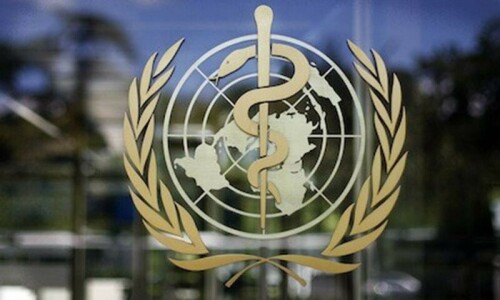ISLAMABAD: The Punjab government is seeking a $50 million loan from World Bank affiliate International Development Association (IDA) for the development of tourism sector in the province.
The provincial government has designed a project which would help strengthen the governance and institution capacity to promote and leverage private participation in order to realise the economic potential of tourism sites for the benefit of the population.
The World Bank has already financed the preparation of a new tourism policy of Punjab and the proposed loan will support the implementation of the policy. The rationale of World Bank engagement is to ensure that local populations get a fair chance to participate in the process through improved service delivery, better skills development opportunities, stronger governance and a more prominent say in local development plans with a special focus on improving female labour force participation.
An assessment prepared by the WB for the project, a copy of which was obtained by Dawn, states that governance of most tourist sites remains complex and requires reform. Historical sites managed by various entities including the Archaeology Department and Auqaf while few fall under the domain of municipal bodies whereas a number of sites remain under private ownership.
The provincial archaeology department regulates 402 sites, including 142 under its direct control whereas remaining are private properties. Of these 140 are regulated through
Antiquities Act 1975, amended after Eighteenth Amendment as the Antiquities (Amendment) Act 2012, whereas remaining 362 falls under the purview of the Punjab Special Premises (Preservation) Ordinance, 1985.
The Auqaf Department manages 24 important mosques and 37 Sufi shrines across the province. Some of the religious and cultural sites, according to the Evacuee Trust Properties are the primary responsibility of the Evacuee Trust Property Board (ETPB), which is a federal authority. Overlap of tourism management functions between federal and provincial governments still needs clarity, it says.
The provinces control their own tourism development corporations but the Pakistan Tourism Development Corporation (PTDC) remains in operation under the Ministry of Information, Broadcasting and Cultural Heritage.
The future of assets owned by the federal tourism ministry is yet to be decided, the report points out.
Hotel developers and tour operators argue that federal and provincial government-owned companies and agencies crowd out private investment. Tourism-related services are underdeveloped and some niche markets are dominated by state-owned agencies. The private sector wants the public sector to facilitate and promote private tourism development rather than control and manage assets and activities that could be delivered by the private sector.
Relatively few citizens derive their main livelihoods from tourism around touristic sites, though some Sufi shrines currently yield substantial economic benefits to local populations. Only the private sector has the capital, the relevant expertise and necessary business networks to build sustainable businesses that can realize the potential of the sector.
Investors in the tourism sector are also concerned about site specific infrastructure, availability of skills and the implementation of rules and regulations in the sector. The infrastructure around many sites is underdeveloped, including access roads, road-side facilities, parking, pedestrian areas and boarding and lodging facilities. There is a severe shortage of accommodation facilities for visitors during major festivals which have negative economic implications for Lahore city, the report says.
Published in Dawn, January 15th, 2017













































